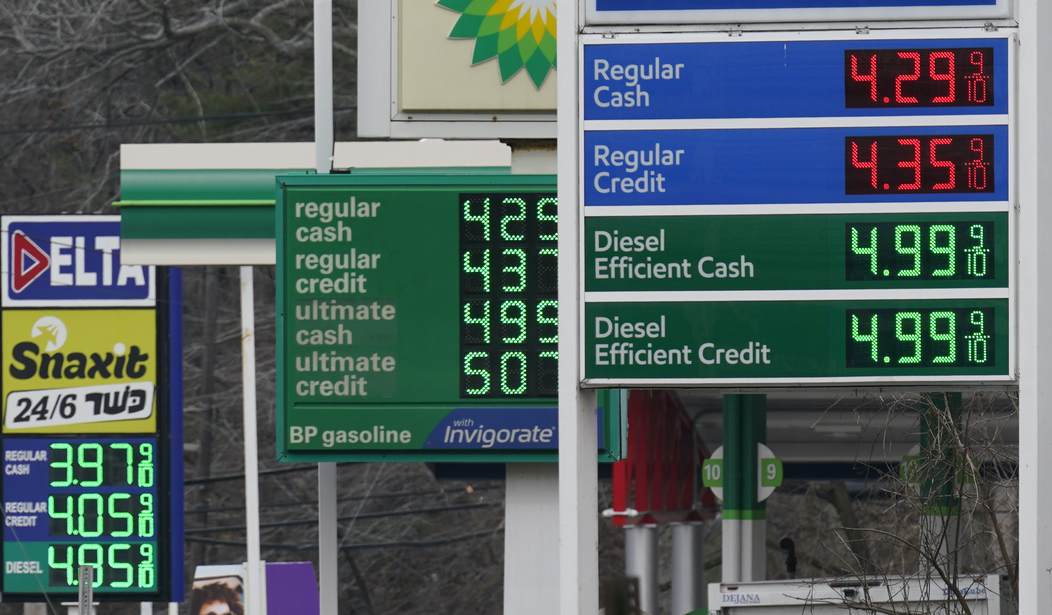It is a truism to say that making something more expensive will make it more expensive.
So it’s not a surprise that when asked whether increasing the cost of carbon emissions would increase the cost of carbon emissions, economist Scott Smith told his bosses that, indeed, doing so would increase the cost of carbon emissions.
Smith’s bosses at the Washington Department of Transportation didn’t like that answer because it made their program to put a cap and trade policy in place look bad.
A state economist says he had to resign after suffering retaliation for his analysis that the state's cap-and-trade policy would significantly increase gas prices. https://t.co/m1pg7M8oh3
— KING 5 News (@KING5Seattle) December 1, 2023
Washington State politicians are committed to reducing carbon dioxide emissions and have put a cap and trade policy in place. Its purpose is to raise the cost of burning fossil fuels and take the money raised to spend elsewhere–presumably on reducing dependence on fossil fuels if you believe that government programs work how they claim to. More likely, the money just gets spread around as politicians like.
Smith was tasked to do forecasts about the price of gas and the trajectory of gas taxes, and make predictions about the economic impacts of imposing these price increases.
Unsurprisingly he found that when you make it more expensive, gasoline prices rise. It is a tautology.
His bosses didn’t like that answer for obvious reasons. Nobody wants to admit that they are making life more expensive for constituents. They wanted to blame the oil companies for the inevitable price increases.
A former state economist has filed a legal claim against two state agencies and the Office of the Governor for allegedly retaliating against him for refusing to keep quiet about his economic forecast on the state’s gas price.
For the last five years, Scott Smith of Tumwater was a transportation planner for the Washington State Department of Transportation (WSDOT). He was the primary WSDOT employee tasked with forecasting fuel consumption, pricing and revenues from gas taxes and fees. After 35 years working as a public sector economist, Smith said his career was ruined for his refusal to lie about how a new state policy, according to his mathematical calculations in early 2023, would jack up prices at the pump by 45 to 50 cents per gallon. He said the retaliation and pressure were so great he felt forced to resign.
Policymakers had been promising consumers that they wouldn’t even notice the impact of their cap and trade program on gas prices, and for some reason, citizens always play Charlie Brown to the government’s Lucy with the football. As long as everybody agrees to pretend that everything will be OK, maybe it will be. If not, then find a scapegoat.
Smith, though, had a job to do. His job is to produce projections, and the projections said that gas prices would rise by about 50 cents a gallon. He made the mistake of having a bit of integrity and got shafted for it. Nobody told him we live by China’s rules now, it being the “Pacific Century.”
State leaders told consumers not to worry: the cap-and-trade system wouldn’t add much to the price of gas. Two months before the policy went into effect, a top official at the Dept. of Ecology said drivers wouldn’t notice.
“I don’t think it’s going to be noticeable,” said the Dept. of Ecology’s Climate Policy Section Manager Joel Creswell in November 2022.
In March, another Ecology manager echoed the sentiment.
“All in all, over time, we don’t think we’re going to see a big impact on prices at the pump, on customer prices,” said Ecology’s Climate Commitment Act Implementation Manager Luke Martland.
On Ecology’s website, the agency featured a prediction that the Climate Commitment Act’s impact would be “very modest” and that Ecology had “evaluated prices under a range of potential market strategies.” That web page has since been removed.
“That (analysis) flies in the face of reality,” Smith said. “It’s really sixth grade math.”
Of course it is easy to see this. Gasoline production and use emit carbon dioxide, and the state is forcing emitters to pay for the right to emit carbon dioxide. It’s not rocket science. It’s solving the equation X=X.
Smith’s mistake was to believe that he was being paid to produce a good analysis when, in fact, his bosses thought his job was to lie for their benefit. He faced a choice: do his job or do what he was told. And if he did his job, life would become hell.
So Smith is out. He’s suing and may even win.
But will that matter for the people of Washington? Surely not. In fact, they will have to foot the bill for whatever settlement he gets, adding just a touch more to the price they pay for trusting their government leaders.








Join the conversation as a VIP Member